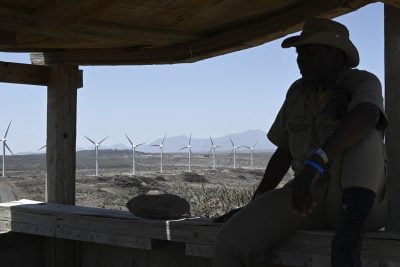Nigerian oil and gas company Seplat made the headlines this year when it announced that it had bought the offshore shallow water business of ExxonMobil in the country for $1.2bn.
Although the deal to acquire the entire share capital of Mobil Producing Nigeria Unlimited still needs ministerial consent and regulatory approvals, it appears set to go ahead, further boosting local empowerment in the oil and gas sector.
Seplat anticipates that the transaction will create one of the largest independent energy companies on both the Nigerian and London stock exchanges, on which it is listed.
Chairman Ambrosie Orjiako reaffirmed in March that the deal was on track after reports emerged that the Nigerian National Petroleum Corporation (NNPC) was looking to block it.
Outlining the benefits of the deal, he said that “as a significantly larger business, with a stronger resource base and greatly enhanced capabilities, we will be better positioned to provide sustainable energy solutions that drive growth and profitability for the benefit of all our stakeholders, particularly our host communities and the wider Nigerian economy.”
- Race for Buhari’s successor dogged by uncertainties
- Nigeria’s infrastructure projects move forward as elections loom
- Nigerian banks face survival of the fittest in fintech era
- Privatisation fails to end Nigeria’s power woes
Local giants in the sector have emerged over the past decade in the wake of international oil companies moving out of Nigeria or moving into deeper water to avoid disruption and criminal damage to onshore assets such as pipelines by community and criminal groups in the Niger Delta.
Shell, which has been in Nigeria from the onset of oil production in the country, recently announced it will sell its remaining onshore assets, citing issues with communities as well as pressures to move to cleaner energy.
“The balance of risks and rewards associated with our onshore portfolio is no longer compatible with our strategic ambitions. We cannot solve community problems in the Niger Delta and the company has started discussions with the government on how to move forward,” CEO Ben van Beurden told investors last September.
Seplat is among those said to be in the running for a chunk of Shell’s onshore assets alongside other indigenous players such as Sahara Energy, Heirs Oil and Gas Ltd and ND Western, says Bloomberg news agency, citing sources close to the deal.
However, the deal has been delayed by a court ruling that has ordered Shell and joint venture partner NNPC to pay the Ejalawa community in Rivers State $2bn and clean up damage from oil spills before it can be concluded.
Protection of communities is covered by the Petroleum Industry Act, which has introduced sweeping reforms to the oil and gas sector.
The legislation was passed last year after being in the works since the early 2000s. Among other things, it requires all exploration and production companies to set up host community development trusts for the benefit of the the areas in which they operate.
Opportunities for locals expand
One of the catalysts for the rise of economic empowerment in the indigenous oil industry was the passing of the Local Content Act in 2010, which opened up opportunities for locals to get a greater stake in this lucrative industry.
Seplat’s ExxonMobil deal is the latest in a string of similar deals with oil majors that have created sizeable local players in the sector.
In 2015, Oando paid a hefty $1.6bn for the local onshore assets of US oil major ConocoPhillips, while others such as Seplat, Shoreline Natural Resources, Seven Energy and Lekoil have acquired similar assets over the past decade in deals worth about $11.5bn.
The Local Content Act has complemented the indigenisation of the ecosystem. Although falling short of its ambitious targets to achieve in-country value addition of 70% within 10 years, it has nevertheless achieved some impressive gains.
These include 50% of all engineering jobs done by Nigerians and 40% of marine vessels produced locally. The number of registered service companies has risen from 44 to 92 in 11 years, and many thousands of jobs have been created.
Want to continue reading? Subscribe today.
You've read all your free articles for this month! Subscribe now to enjoy full access to our content.
Digital Monthly
£8.00 / month
Receive full unlimited access to our articles, opinions, podcasts and more.
Digital Yearly
£70.00 / year
Our best value offer - save £26 and gain access to all of our digital content for an entire year!
 Sign in with Google
Sign in with Google 



